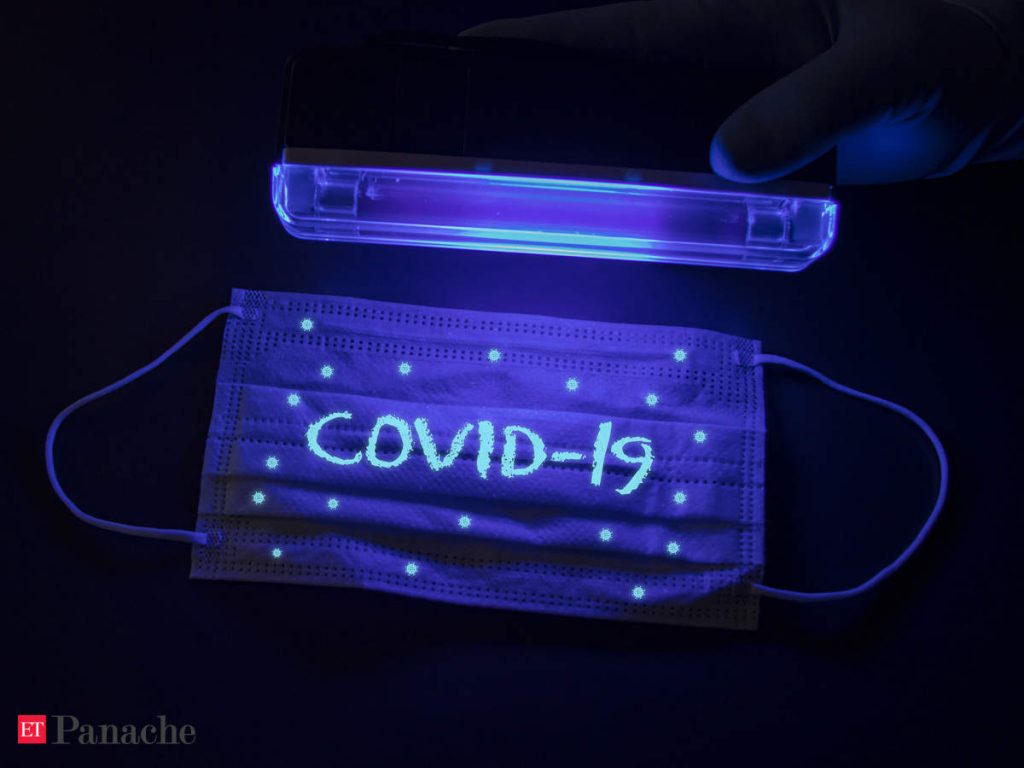After being subjected to ultraviolet light, Japanese scientists developed masks that “can trace coronavirus” (UV).
The masks were constructed by a team of scientists at Kyoto Prefectural University in western Japan using antibodies extracted from ostrich eggs. The team, led by university president Yasuhiro Tsukamoto, 52, believes the masks would “offer users an easy way to test whether they have contracted the virus.”
“A coronavirus sample glows on a face mask filter under an ultraviolet light after being sprayed with a fluorescent dye-containing antibodies,” a report stated.
The team created a specific filter and is inserted it within the face mask. “The filter can be removed and sprayed with a fluorescent dye-containing coronavirus antibodies from ostrich eggs.” The filter will glow when shone under UV light if the virus is present,” it stated.

Experiments with 32 persons infected with the coronavirus lasted ten days. The scientists discovered that all of the masks they wore shone under UV light in all circumstances, but this glow faded over time as their virus load reduced.
The team intends to obtain approval from Japanese authorities to market the masks next year if the ongoing testing goes as anticipated.
In February 2020, the researchers injected an inactive and harmless form of the coronavirus into female ostriches. The experiment was a success since the ostrich eggs produced a huge amount of antibodies.

“Ostriches are capable of producing several different kinds of antibody, or proteins that neutralize foreign entities in the body,” the report said.
The next step for Tsukamoto’s team is to broaden the experiment to include 150 people. After wearing one of the experimental masks and checking it for glow, the university president learned that he was positive for COVID-19. A polymerase chain reaction test confirmed his diagnosis.
“We can mass-produce antibodies from ostriches at a low cost. In the future, I want to make this into an easy testing kit that anyone can use,” Tsukamoto said.


